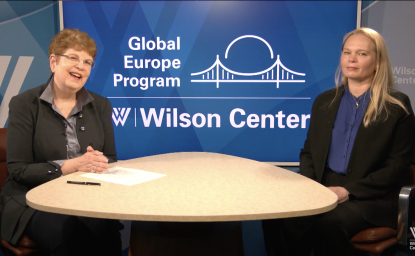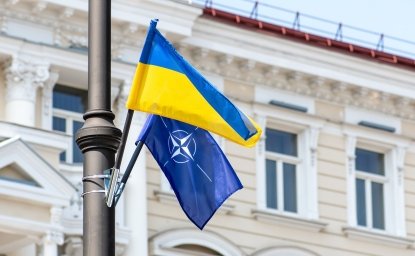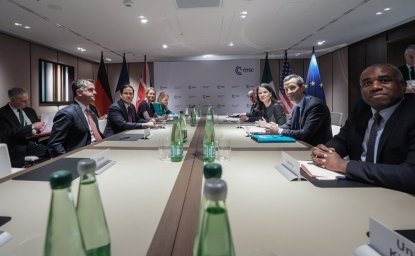265. The European Union's Eastern Enlargement: State-Building or Empire-Building?


Scholarly debates on the nature of the European Union typically revolve around the question of the degree to which state sovereignty is being impaired (or transcended) by the process of integration. Realists and intergovernmentalists, such as Alan Milward and Andrew Moravcsik, argue that integration serves the interests of the member states and, hence, consolidates the nation-state by enabling positive domestic results that could not be achieved without multilateral cooperation. Others, more supranationally-inclined, like Joseph Weiler, maintain that what may begin as an issue of specific "pooling" of sovereignty can take on a life of its own, as new structures of governance are created that ultimately supercede and curtail national authorities. Not surprisingly, these divergent views of integration posit continuous tensions and conflicts between national governments and supranational institutions over the contested question of where ultimate sovereignty and decision-making authority should reside. In the context of the EU's eastern enlargement, however, such tensions appear to have fallen largely by the wayside. Both the Brussels bureaucracy and the national governments are in agreement that preserving the gains of integration to date – regardless of whether these accrue mainly to the benefit of the nation state or the supranational entity – entails a concentrated effort of EU-assisted ‘institution-building' in the East European candidate countries.
The European Union Council Meeting (October 24-25, 2002) endorsed "the Commission's proposal to make available a special transition facility for institution-building with a view to continuing the process of building up the new Member States' administrative and judicial capacity." (Presidency Conclusions) This facility, in addition to the structural and cohesion funds that will be distributed after membership, is designed to replace the broader assistance programs developed during the accession process with targeted objectives that reflect the EU's greatest post-membership concern. Namely, this is whether the new member states will be able to successfully administer EU funds, fulfill EU objectives and regulations, and preserve the well being of EU citizens in addition to governing their own societies. Accordingly, the EU's focus will be on developing state capacities in the realms of justice and home affairs, the internal market, environmental protection, food and nuclear safety, and , finally, "general public administration reforms." In the words of the Commission, "administrative capacity needs to be strengthened in all areas to enforce the acquis strictly." (Strategy Paper 2002) Largely to meet the demands of national governments (the Dutch) that the acquis indeed be very strictly enforced, the Commission has proposed a "specific internal market related safeguard mechanism" that would, for the duration of three years after entry into the EU, provide the Commission with the authority both to monitor and enforce compliance on the part of the East European states.
To accomplish the combined task of constructing institutions and policing behavior within them, the Commission's own administrative capacity will, inevitably, have to be enhanced with more funding and greater manpower – a realization that no doubt factored into the German government's decision recently to support Prodi's calls for a stronger Commission. Whatever the former antagonisms might have been between the Commission and the national governments, the old faultlines have been superceded by the need to form a common front in confronting the 'challenges' of enlargement. Underlying this unified front is the desire to preserve the interests of currently existing constituencies – the governments and citizens of Western Europe. The immediate outcome of the EU's response to Western Europe's fears regarding potential negative consequences of enlargement has already become clear in the conditions for entry negotiated with the East European candidate countries, i.e., the seven year moratorium on labor mobility and the demand to close the eastern borders. The long-term implications of a state-building project designed largely to serve the interests of external actors and interests, however, are as yet unclear.
Most importantly, in the future, will the East European member states be able to use their enhanced capacity for public administration and their newly trained civil service to negotiate and compete on equal terms with the Western member states in the pursuit of their national interests? In other words, will the envisioned institution-building project produce the same kind of deliberative, rational-technocratic, democratic sovereignty that now characterizes the member states of the EU, regardless of how one evaluates the exact balance of power between national governments and supranational institutions? Or will the project embodied in the ‘special transition facility' result in bureaucratic-regulatory states that are more responsive to EU directives than to the needs and interests of their own populations? In this latter case, the EU would become primarily a self-interested hegemon, a "reluctant empire" as Jacques Rupnik puts it, rather than the facilitator of truly democratic states capable of promoting the development of their own societies and determining the parameters of development based on specific national context. Although future outcomes are difficult to predict, given the unprecedented nature of this enlargement as well as the unprecedented nature of the EU itself, in what follows, I suggest that the present may hold some clues as to what future membership might entail for the East European candidate countries. In particular, the negotiating environment that has characterized the accession talks provides grounds to believe that while the EU Commission and West European member states will attempt to continue exploiting their asymmetrical bargaining position vis-à-vis East European states, such attempts will be met with continuous contestation. If the EU is a 'reluctant' empire-builder, then the East Europeans are reluctant subjects as well.
Reluctant Empires and Reluctant Subjects: The EU's Eastern Enlargement
To date, the most visible outcome of the asymmetrical bargaining positions characterizing accession negotiations has been the curtailed and phased-in distribution of the Common Agricultural Policy (CAP) funds and the Structural and Cohesion funds. CAP funds, for example, are to be dispersed to East European farmers at a quarter of the direct payments to which current members are entitled. Parity with West European farmers is not to be achieved until 2013. Moreover, the distribution of any and all funds by Brussels is contingent upon the ability both to absorb and dispense the funds without waste, corruption or unaccountability. The EU's previous demands upon candidate countries to return funds that were deemed improperly handled – levied against Poland and Slovakia – indicate that this contingency is no idle threat.
While funding matters related to agriculture have received the most public attention, including public protests in candidate countries such as Poland and the Czech Republic, other less visible manifestations of asymmetry are also evident. Analysts such as Jozef Borocz have noted the Commission's tendency to raise the bar of entry by imposing new conditions once old ones are deemed to have been met. The basis of evaluating candidate countries, accordingly, has shifted over time from the formal Copenhagen criteria (stable democracies and competitive markets) to concerns over minority rights, border controls, gender rights, corruption and, most recently, food safety (i.e., ensuring the quality of foodstuffs exported to the West European member states), and environmental protection. Naturally, all of these conditions represent valid concerns about the general quality of life within an enlarged EU. Unfortunately, no parallel effort has been undertaken to initiate a Union-wide discussion about these goals and the best way to achieve them throughout the EU and not just in the candidate countries. Although Eastern Europe is not uniquely plagued by concerns such as minority rights abuses, corruption problems or food safety issues, the Commission has chosen to act as if it were. Consistent with this type of imposed unilateralism has been the very unclear criteria of evaluation and compliance maintained by the Commission, which has led the Open Society Institute‘s EU Accession Monitoring Program to voice its concern over how candidate countries are to implement the necessary programs without clear and consistent performance guidelines. Finally, the fact that the East European candidate countries have also been excluded from active participation in the EU's on-going Constitutional Convention – even though they will have to abide by its outcome after membership – represents an additional indicator of the degree to which the accession process has been determined by an agenda set in Brussels on the basis of existing power disparities.
Regarding post-entry expectations, East European candidates, especially, claim that this asymmetry is an indication of their future second-class citizenship status in an enlarged EU. There has already been some post membership experience of the type of passive, subordinate behavior that is perhaps expected of new East European members in organizations such as the Council of Europe. In this case, the 'observer' rather than 'participant' status of the East European members of the Council's Committee of Experts on Nationality has been noted by Jeffrey Checkel. More likely, however, given the particular dynamics of EU accession, is an outcome of contested tutelage in which relegation to second-class status will be both inevitable given the EU‘s current level of institutional complexity (which would necessitate an adjustment period) as well as the structural disadvantages of the East European member states and resisted according to the template of hardnosed, self-interested bargaining that the new member states have had to endure at the hands of the older EU members. In this context, it is significant that almost all previous enlargement negotiations have been asymmetrical in nature (although not as extreme as in the case of the eastern enlargement) and have invariably been followed by efforts to re-negotiate the most unfavorable terms once entry has been achieved. In the current bargaining surrounding accession, East European negotiators and informed publics have undergone what might be called a learning process, in which clear structural inequalities, attendant slights and perceived injustices have been made blatantly obvious. Equally importantly, however, is the recognition that within those constraints, contestation, both practical and symbolic, can take place. Consequently, not all negotiating outcomes have been, or more importantly need be, unfavorable. While by no means always successful, contesting the EU's agenda has led to compromise positions already in the accession negotiations, most notably in the moratorium on foreign ownership of land granted to Poland. Such precedents will, no doubt, fuel further efforts to promote national interests after membership. If previous enlargements are any guide, what may have been learned throughout the course of these negotiations, is the ‘right to have rights,' as well as interests, and how best to defend them in the Byzantine labyrinths of EU policy networks, committees and meeting rooms. Furthermore, given the EU's own standards of formal equality and consensual decision-making as well as its stated efforts to move toward not just a regulatory system of governance, but a democratic, representative regulatory system of governance, the East European member states will be able to contest any post-entry exclusions and marginalizations in formal terms. This is in contrast to their experiences under Soviet hegemony, which promoted informal methods of resistance, dissimulation and circumvention – although, no doubt, these skills and practices will also be deployed in the context of EU membership.
Conclusion
In short, the fact that the East European countries joining the EU will undoubtedly be better off both institutionally and materially than those left outside, should not blind us to the potentially divisive consequences of the terms and conditions currently being imposed on the candidate countries. These terms are likely to lead to new faultlines and tensions within the enlarged EU, as conflicts over how resources should be distributed between the "established" members and the new, recently "outsider," members replace former concerns over sovereignty. Although the bargaining process between the EU and Eastern Europe has been highly asymmetrical, even to the point of establishing the dominance of a new hegemon in Eastern Europe, this asymmetry, as Frank Schimmelfennig and Ulrich Seidelmeyer have pointed out, has not prevented the structurally disadvantaged and resource poor candidate countries from being able to exercise some leverage within the context of negotiations with a rule-bound, constitutionally-anchored political system that remains somewhat sensitive to issues of fairness and redistributive justice. Accordingly, "shaming," persuasion, informal resistance, noncompliance and formal, open contestation are all viable mechanisms that the future member states are expected to continue using in their efforts to redress the most invidious aspects of the 'institution-building' process the EU has initiated. While the eventual outcome of this process may fall short of the most desirable standards of democratic state-building, it is also likely to fall short of even the most concentrated efforts to relegate the new member states to the status of a passive periphery constructed to protect the interests of an 'imperial' EU core.
Dr. Cirtautas spoke at an EES noon discussion on November 6, 2002. The above is an edited version of her presentation.

The Global Europe Program is focused on Europe’s capabilities, and how it engages on critical global issues. We investigate European approaches to critical global issues. We examine Europe’s relations with Russia and Eurasia, China and the Indo-Pacific, the Middle East and Africa. Our initiatives include “Ukraine in Europe”—an examination of what it will take to make Ukraine’s European future a reality. But we also examine the role of NATO, the European Union and the OSCE, Europe’s energy security, transatlantic trade disputes, and challenges to democracy. The Global Europe Program’s staff, scholars-in-residence, and Global Fellows participate in seminars, policy study groups, and international conferences to provide analytical recommendations to policy makers and the media. Read more



